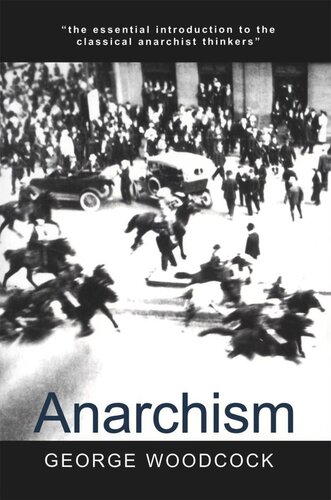

Most ebook files are in PDF format, so you can easily read them using various software such as Foxit Reader or directly on the Google Chrome browser.
Some ebook files are released by publishers in other formats such as .awz, .mobi, .epub, .fb2, etc. You may need to install specific software to read these formats on mobile/PC, such as Calibre.
Please read the tutorial at this link: https://ebookbell.com/faq
We offer FREE conversion to the popular formats you request; however, this may take some time. Therefore, right after payment, please email us, and we will try to provide the service as quickly as possible.
For some exceptional file formats or broken links (if any), please refrain from opening any disputes. Instead, email us first, and we will try to assist within a maximum of 6 hours.
EbookBell Team

0.0
0 reviewsTo what degree can anarchism be an effective organized movement? Is it realistic to think of anarchist ideas ever forming the basis for social life itself? These questions are widely being asked again today in response to the forces of economic globalization. The framework for such discussions was perhaps given its most memorable shape, however, in George Woodcock's classic study of anarchism—now widely recognized as the most significant twentieth-century overview of the subject.
Woodcock surveys all of the major figures that shaped anarchist thought, from Godwin and Proudhon to Bakunin, Goldman, and Kropotkin, and looks as well at the long-term prospects for anarchism and anarchist thought. In Woodcock's view "pure" anarchism—characterized by "the loose and flexible affinity group which needs no formal organization"—was incompatible with mass movements that require stable organizations, that are forced to make compromises in the face of changing circumstances, and that need to maintain the allegiance of a wide range of supporters. Yet Woodcock continued to cherish anarchist ideals; as he said in a 1990 interview, "I think anarchism and its teachings of decentralization, of the coordination of rural and industrial societies, and of mutual aid as the foundation of any viable society, have lessons that in the present are especially applicable to industrial societies."
This classic work of intellectual history and political theory (first published in the 1960s, revised in 1986) is now available exclusively from UTP Higher Education.